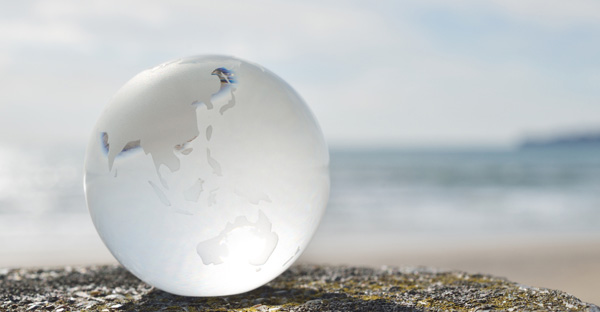

My guess is that most people would answer that “our own health” is most important. Not because they’re selfish or uncaring about the environment, but because they probably don’t know what’s at stake should our ecosystem no longer be able to sustain us. And they don’t know the most powerful action we can take to promote ecological health.
My answer to the title question is that NOTHING is more important than the sustainability of our ecosystem. That’s because without a healthy ecosystem, our civilization will collapse, making life a hell on Earth for those few of us who survive. And, when that happens, what good is being healthy if we don’t have enough food, water, shelter and clean air?
As for environmental health, most people think it’s a matter of recycling, taking shorter showers, driving electric cars, installing solar panels, etc. All good things to be sure, but only a drop in the bucket when it comes to preserving our ecosystem’s ability to sustain us.
First, we must all understand the extent of the problem. Our ecosystem is already sick and is getting sicker each day–and it is human activity that is most responsible. In January, I published a blog entitled Racing past environmental tipping points in 2015. It was inspired by a new scientific study reporting that we’d already passed four of nine planetary boundaries (extinction rate, deforestation, CO2 levels and the flow of fertilizer waste into our oceans) and concluding:
So what should we be doing to keep our planet a “safe operating space” for human beings? First, we need to step back and look at the BIG PICTURE of the categories of human behavior that are harming our planet. Then we must take the most powerful step that we can take when it comes to saving our ecosystem. I believe we have four urgent problems when it comes to human activity:
We must eventually address ALL of the above issues in order to support the long-term sustainability of first, our civilization, and ultimately, the human species. The problem is that it will take many decades, if not centuries, to make all the necessary changes in the first three categories.
But the GOOD NEWS is that the “wrong food” category can be fixed in a relatively short period of time. More good news — our consumption of animal-based foods is by far the leading contributor to most of our environmental problems. If we can fix that one, we can buy ourselves enough time to fix the other three.
By convincing all humans that not only is a diet of whole, plant-based foods great for our health–it’s also the single best favor that we can do for our environment and for all humans who follow us on Planet Earth.
Most people reading this article on T. Colin Campbell Center for Nutrition Studies website already know about the power of whole, plant-based foods for promoting vibrant human health. Now, we just need to do our best to spread the good news about the most important benefit–promoting the health of the fragile ecosystem that sustains us.
The fact is that anyone who is eating animal-based foods can switch to mostly plant-based in just a matter of days. So, the single best thing that we can all do for our environment, our civilization and the future of our species is to help EVERYONE understand the most important reasons why they should make that switch–the sooner the better!
HAPPY and HEALTHY EARTH DAY!
Copyright 2026 Center for Nutrition Studies. All rights reserved.